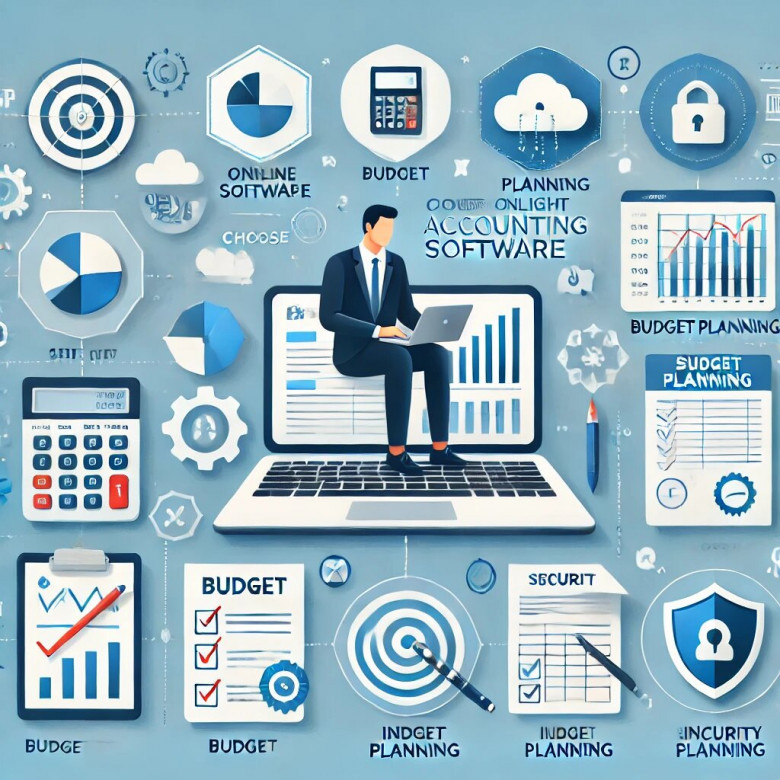views
How to Choose the Right Online Accounting Software for Your Small Business
Managing finances is a critical aspect of running a successful small business. With the increasing availability of online accounting software, business owners can now automate financial tasks, streamline invoicing, and monitor cash flow efficiently. However, selecting the right online accounting software can be overwhelming with so many options available. In this guide, we will explore essential factors to consider when choosing the best accounting software for your small business.

1. Assess Your Business Needs
Before diving into software options, take the time to understand your business’s specific accounting needs. Consider factors such as:
-
The size of your business
-
The number of employees
-
The complexity of your financial transactions
-
The need for payroll and tax management
-
Whether you require multi-currency support
2. Determine Your Budget
Accounting software varies in pricing, from free plans for startups to premium packages for growing businesses. Establish a budget that aligns with your business’s financial situation and ensures you get the best features without overspending.
3. Cloud-Based vs. Desktop Software
Most modern accounting software is cloud-based, allowing access from anywhere with an internet connection. Benefits of cloud-based solutions include:
-
Automatic updates
-
Real-time financial data tracking
-
Easy collaboration with accountants and team members
-
Secure data storage
If you prefer a more traditional approach, desktop accounting software can provide enhanced security and offline access.
4. Look for Essential Features
When evaluating accounting software, prioritize features that best serve your business, such as:
-
Invoicing and Billing: Ensure the software allows easy creation, customization, and tracking of invoices.
-
Expense Tracking: The ability to monitor expenses and categorize them for tax purposes.
-
Bank Reconciliation: Automatic bank feeds help streamline financial transactions.
-
Payroll Processing: If you have employees, consider software that includes payroll features.
-
Tax Compliance: Tax calculation, GST/VAT compliance, and tax filing assistance.
-
Multi-User Access: If you have an accounting team, multi-user support is crucial.
5. Consider Integration Options
Your accounting software should integrate with other business tools like:
-
Payment processors (PayPal, Stripe, Square)
-
E-commerce platforms (Shopify, WooCommerce)
-
CRM systems
-
Inventory management tools
Seamless integration reduces manual data entry and improves workflow efficiency.
6. Check User-Friendliness
Opt for software that is intuitive and easy to navigate. Complicated systems may require extensive training and slow down operations. Many providers offer free trials—use them to assess usability before committing.
7. Review Security Features
Financial data security is crucial. Ensure the software provides:
-
Data encryption
-
Multi-factor authentication
-
Regular backups
-
Secure cloud storage
8. Read Customer Reviews and Testimonials
Check reviews from other small business owners to gauge software reliability, ease of use, and customer support quality.
9. Consider Scalability
Your business will grow, and so will your accounting needs. Choose a solution that can scale with your business by offering advanced features or higher-tier plans.
10. Compare Top Online Accounting Software
Some of the best online accounting software options include:
-
QuickBooks Online: Comprehensive, cloud-based, great for all business sizes.
-
Xero: Excellent for automation and integration.
-
FreshBooks: Best for freelancers and service-based businesses.
-
Zoho Books: Affordable and feature-rich.
-
Wave Accounting: Free software ideal for startups.
Final Thoughts
Choosing the right online accounting software for your small business depends on your unique needs, budget, and preferences. Evaluate options carefully, take advantage of free trials, and invest in software that simplifies financial management, ensuring long-term success for your business.






















Comments
0 comment